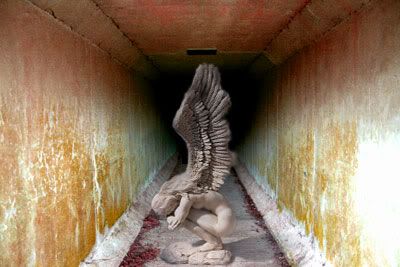
People often wonder why their experiences with childhood abuse impact them so deeply. Why does the damage live on and on in so many of us? Why isn't it like a scraped knee that heals up so that you can just move on? Why do you struggle with anger or depression or fear or chaos or addiction or dysfunction decades after the abuse ends?
That's a complex question and the response is equally complex. The complexity rests in the fact that nothing in your life occurs in a vacuum. The perpetrator. The people who wouldn't or couldn't protect you. The time and place. The circumstances that facilitated the abuse. Your own physical, mental, spiritual, and social needs and conditions at the time. These - as well as many others - are all part of the context in which your abuse occurred.
Abuse - the full context of abuse - changes the way you think about yourself and the world. The way you think about trust and security is altered. The way you approach relationships is overshadowed by pain or terror or fear of abandonment. The value you see in yourself and others is skewed. That context of abuse is imprinted in your mind and heart and becomes the navigator. If you're not careful, you will live on auto-pilot with this navigator steering you to sabotage relationships, devalue yourself, withdraw, attack, or disappear.
The context of abuse teaches you that safety and goodness are not necessarily guaranteed. That lesson is often learned very well and the complexity of that lesson is that it's based on reality. You weren't safe. Bad things did happen. But the other part of that reality is that there are, in fact, good and decent people who are not out to abandon or harm or exploit you.
The complexities of abuse's damage can determine how you cope with stressful situations now. You may work very hard to be self-sufficient - avoiding the need to need anyone. You may cling or obsess or be hyper-vigilant. You may pretend that your past doesn't include the disturbing experience of abuse. You may drive yourself and everyone around you crazy with your anxiety, your fear, and your rage. It's complicated.
The path to becoming healthier requires a recognition that your dysfunctional beliefs about yourself and the world - maybe even God - are not determined solely by the actual abuse. It is larger than that. It is the context. Life - your life - is still lived out in a context. The challenge is to separate the context that you function in today from the context in which your abuse occurred. They are not the same. Even if the same people are in your life - even if you're in the same town and the same house and the same room - it's different. If nothing else, the difference is that you're seeking personal empowerment and a healthier path. That alone, is a huge step to re-arranging the context of your life today.
September 11, 2001
The anniversary is upon us. To commemorate this brutal atrocity, let's work for peace, and strive to be people of grace and mercy. There is no better way to honor those who lost their lives than to be the reflect the love of Christ in this dark, sad world.
We will never forget. Never.



No comments:
Post a Comment